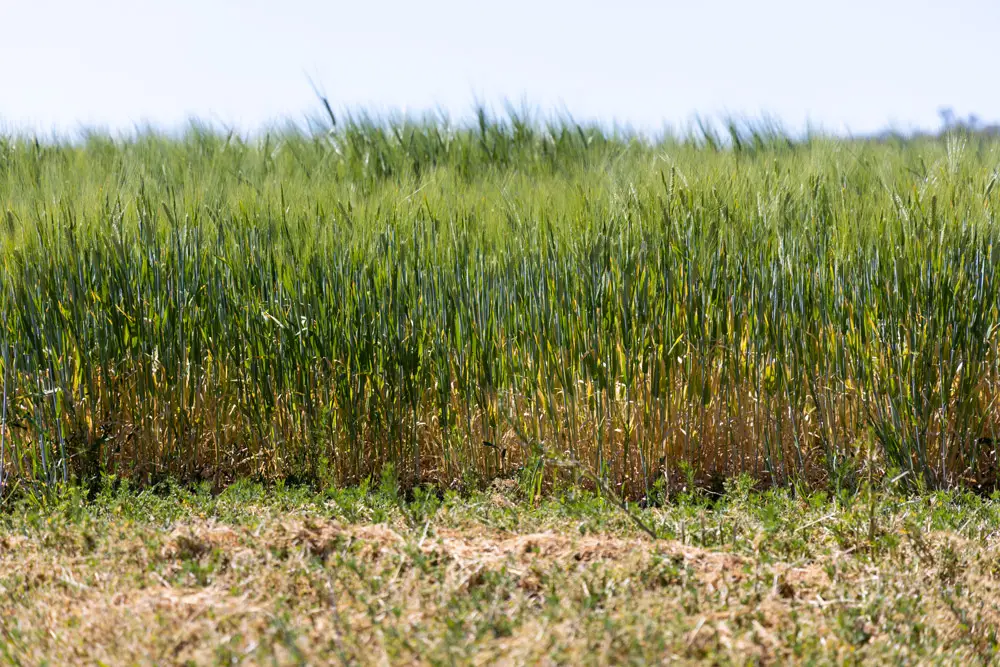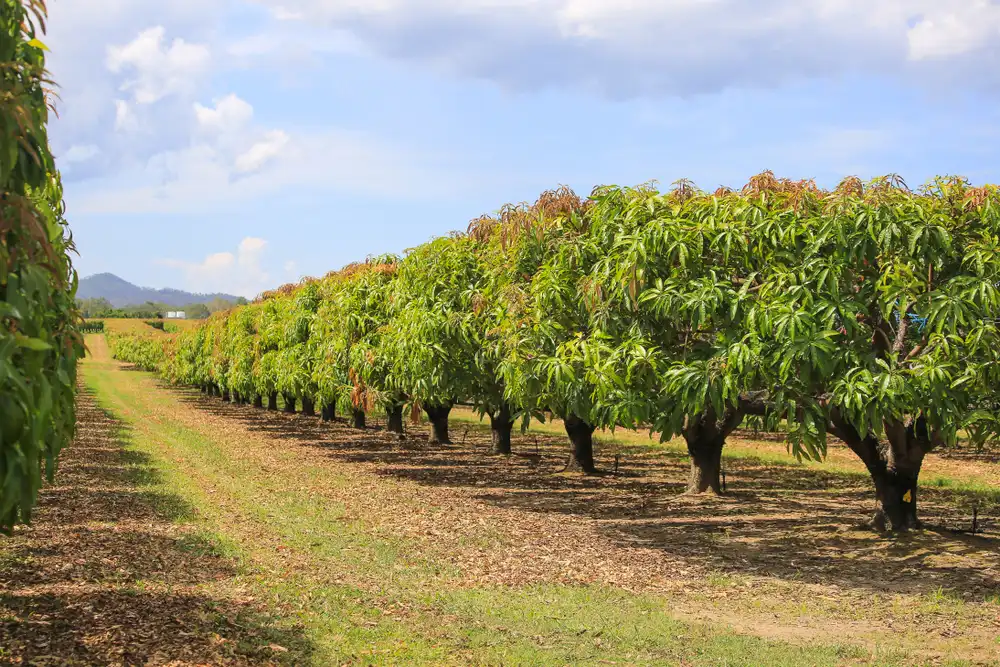By Josefine Pettersson
The environmental and biodiversity benefits of organic farming are widely recognised, however, there have been few long-term studies pertaining to the effects of organic production methods on the nutritional composition of food and human health. A review article has been published in the prestigious agricultural journal Agronomy further substantiating the claims and benefits of organic production.
The extensive review article, co-authored by Southern Cross University, critically explores the evidence regarding the effects of organic farming methods on the nutritional quality of food crops and the range of health benefits related to organic food consumption.
The article spans nearly 50 pages and cites over 250 articles, with two clear conclusions:
- Agricultural intensification has resulted in a reduction in the nutritional quality of food and the sustainability of food production.
- Organic farming practices not only improve food quality and human health, but also food security.
Benefits of organic farm systems
In addition to this, meta-analyses and long-term field experiments have found that the yield gap in organic versus conventional farming systems decreased over time. Organic farms also had a higher nutrient-use efficiency and spatial stability.
The review of the organic-based crop rotation design of ley periods between vegetable crops was beneficial for controlling pesticide-resistant weeds and disease. Diseases like Septoria and Fusarium were higher in conventional NPK fertiliser systems compared to organic, following a grass clover ley. The conventional systems, therefore, required additional fungicide treatments on top of the synthetic fertilisers.
There is increasing evidence and concern that conventional farms are using increasing levels of NPK fertilisers, with decreasing efficiency, rapidly rising costs and environmental impacts. This is compared to the more efficient and sustainable (on many different levels) closed nutrient loop system of organic farms. Examples of the negative aspects of conventional vs organic production are summarised below:
Monoculture and short rotations increase crop species-specific weed, pest and disease pressure and may lead to:
(a) greater dependence on synthetic chemical pesticides,
(b) higher pesticide residues being present in crops, and
(c) a greater risk of Fusarium infection and mycotoxin contamination of cereal grains.
Mineral phosphorus fertiliser can:
(a) reduce mycorrhizal development on roots and thereby negatively affect mineral micronutrient uptake and resistance against soil-borne diseases, and
(b) increase cadmium concentrations in crops.
Mineral nitrogen fertiliser is associated with:
(a) a reduction in crop resistance,
(b) lower concentrations of nutritionally desirable phenolics and other resistance-related phytochemicals/antioxidants in crops, and,
(c) increases the risk of Fusarium infection and mycotoxin contamination in cereal grains.
Synthetic chemical pesticides in agriculture are responsible for chronic dietary pesticide exposure and may reduce concentrations of certain nutritionally desirable phytochemicals/antioxidants and mineral micronutrients in crops.
Modern short-straw cereal varieties are:
(a) less competitive against weeds and more susceptible to certain diseases (e.g., Fusarium, Septoria),
(b) have lower grain protein and mineral micronutrient concentrations, and,
(c) increase the risk of Fusarium mycotoxin contamination in cereal grain.
The article continued to critically examine all aspects of organic versus conventional farming systems from the effects of organic crop protection to soil inoculants, continually concluding that the organic mindset of working with nature, when well-managed, is extremely more efficient compared to working against nature through broad-spectrum fungicides, herbicides and insecticides.
Nutritional benefits of organic produce
The benefits of organic produce were further explored in a nutritional review, with results showing that, on average, organic crops have:
- Lower concentrations of detrimental pesticides and cadmium
- Higher concentrations of beneficial phytochemicals with antioxidant activity (phenolics, plant defence compounds, carotenoids)
- Higher concentrations of beneficial micronutrients
- Lower concentrations of toxic Fusarium mycotoxins
- Increased concentrations of nutritionally desirable omega-3 fatty acids, conjugated linoleic acid (CLA), carotenoids and vitamin E in milk and meat.
The review also cited numerous other direct fruit and vegetable nutritive comparisons, highlighting the benefits of organic versus conventional produce.
What does this mean?
Human dietary intervention studies have found that organic food consumption substantially reduces pesticide exposure in humans. Pesticide exposure affects feed intake, growth, hormone balances and immune system responsiveness in animal models.
Human cohort studies have also reported significant positive associations between organic food consumption and the lower incidence of a range of diseases including obesity, metabolic syndrome, cancer, hypospadias, pre-eclampsia, eczema, and middle ear infections in infants.
The study is an excellent peer-reviewed article regarding the benefits of organic produce on your health down to a cellular level. The review also highlights the range of benefits over a multitude of products for different reasons.
It is interesting to note that some fertility clinics already recommend organic food consumption as a precautionary measure to avoid exposure to pesticides. Additionally, positive associations between organic food consumption and a higher sperm count and density were first reported in 1996 in The Lancet but largely ignored.
The review also highlighted the need for more long-term field experiments to understand the effects of agronomic and soil drivers on crop quality and safety with adjoining human clinical trials to further enforce the positive health outcomes linked to organic food consumption. However, this review is just one of many peer-reviewed scientific articles pertaining to the myriad of benefits of organic agriculture. This is widely accepted and has resulted in Government support for the expansion of organic farming in many countries. For example, the nutritional and environmental benefits of organic agriculture are supported by independent research from the European parliament.
Conclusion
The current yield levels of intensive conventional crop production are not sustainable, due to the high reliance on non-renewable resources.
“Healthy soils generate healthy crops which lead to healthy livestock and humans.”
This ideology was first formulated by Sir Albert Howard and other organic farming pioneers more than 80 years ago, based on traditional organic matter recycling-based farming systems.
To deconstruct this statement, healthier soils equal healthier plants. Organic crops have been shown to have increased resistance against disease and reduced negative environmental impacts. This includes lower nitrate leaching, phosphorus runoff and greenhouse gas emission rates per hectare in addition to the benefits on human health.
The world cannot continue to ignore the mounting dietary evidence that:
(i) conventional fruit, vegetable and whole-grain consumption substantially increases pesticide exposure, and,
(ii) consumption of fruit and vegetables with high pesticide loads may have negative effects on reproductive health and reduce the positive effects of fruit and vegetables.
In conclusion, be safe, be smart, be environmentally conscious and buy organic produce where you can. Always look for a certification mark such as the Australian Certified Organic Bud logo to make sure what you buy is authentically certified organic.
For the full article and references, visit the following link:
Integrated Soil and Crop Management in Organic Agriculture: A Logical Framework to Ensure Food Quality and Human Health?
Rempelos, L., Baranski, M., Wang, J., Adams, T. N., Adebusuyi, K., Beckman, J. J., … & Leifert, C. (2021). Integrated Soil and Crop Management in Organic Agriculture: A Logical Framework to Ensure Food Quality and Human Health? Agronomy, 11(12), 2494.
https://www.mdpi.com/2073-4395/11/12/2494
Image by Louise Wright Photography





